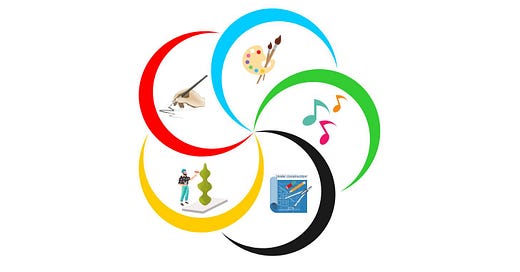Should we hold an Olympics for the Arts?
For a few decades the modern Olympics included medals for the Arts. What if this had never stopped?
Did you know that there used to be Olympic medals awarded for the Arts?! I only discovered this last week when, in my other life as a homeschool mum, I ran a lesson on the Olympics for a group of tween girls. We learned that from 1912 to 1948, continuing a tradition established in the ancient games, Olympic medals were awarded in the categories of archi…




